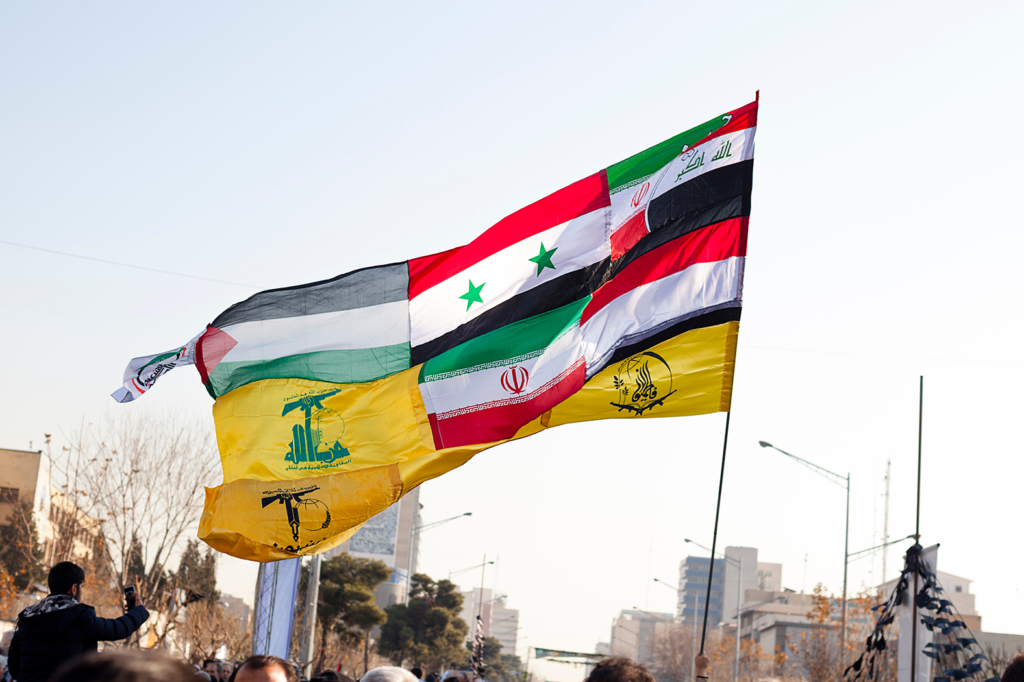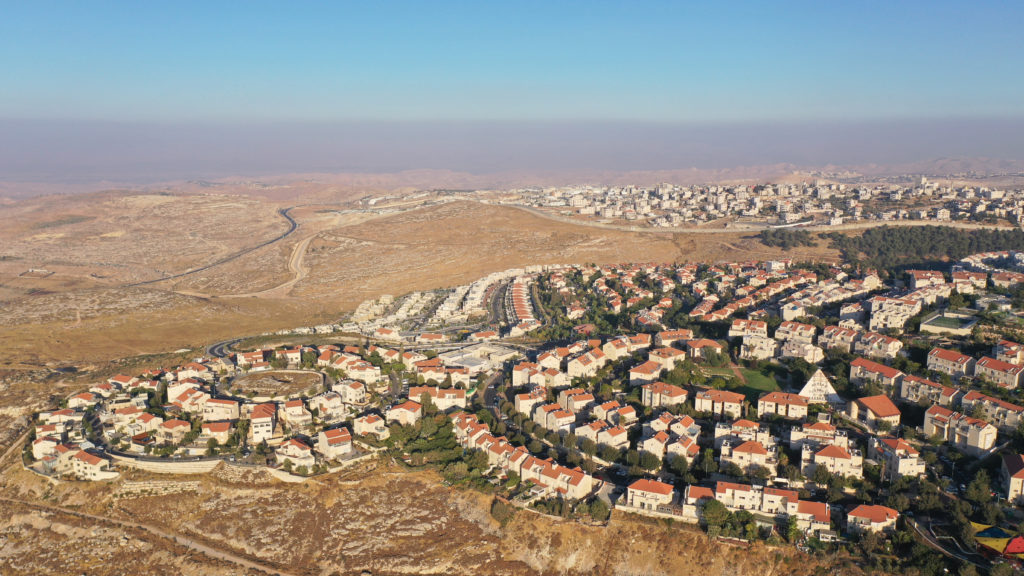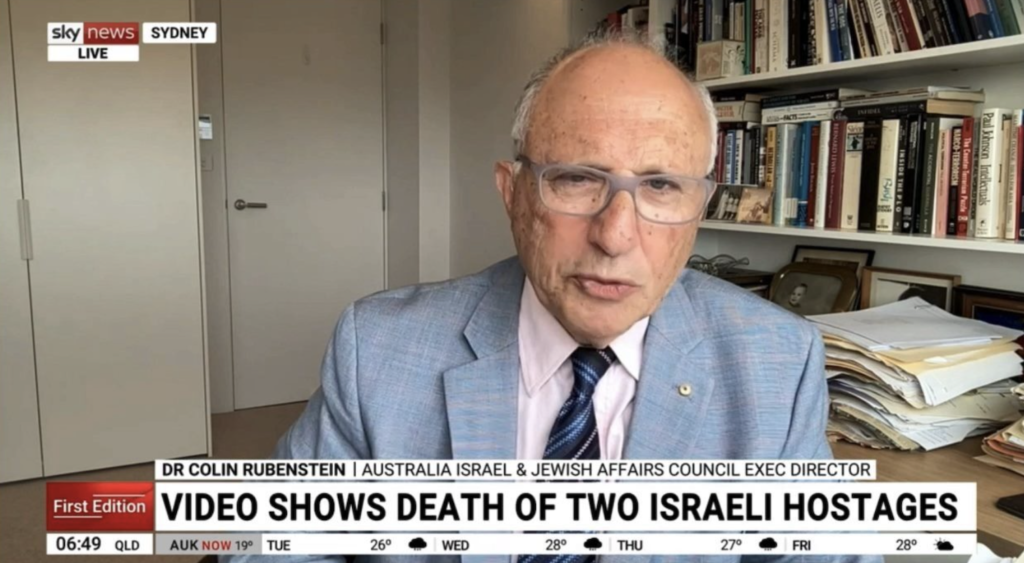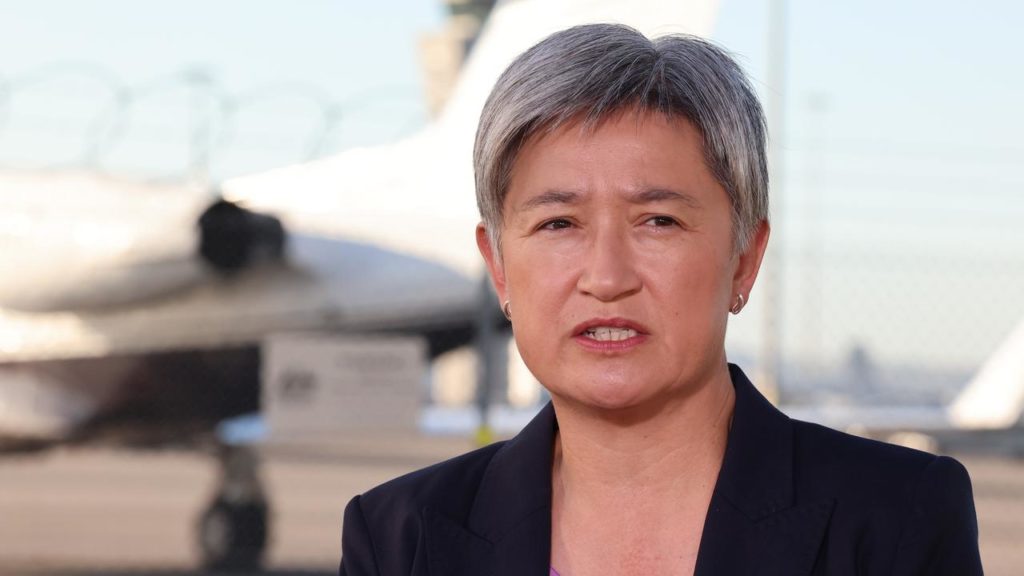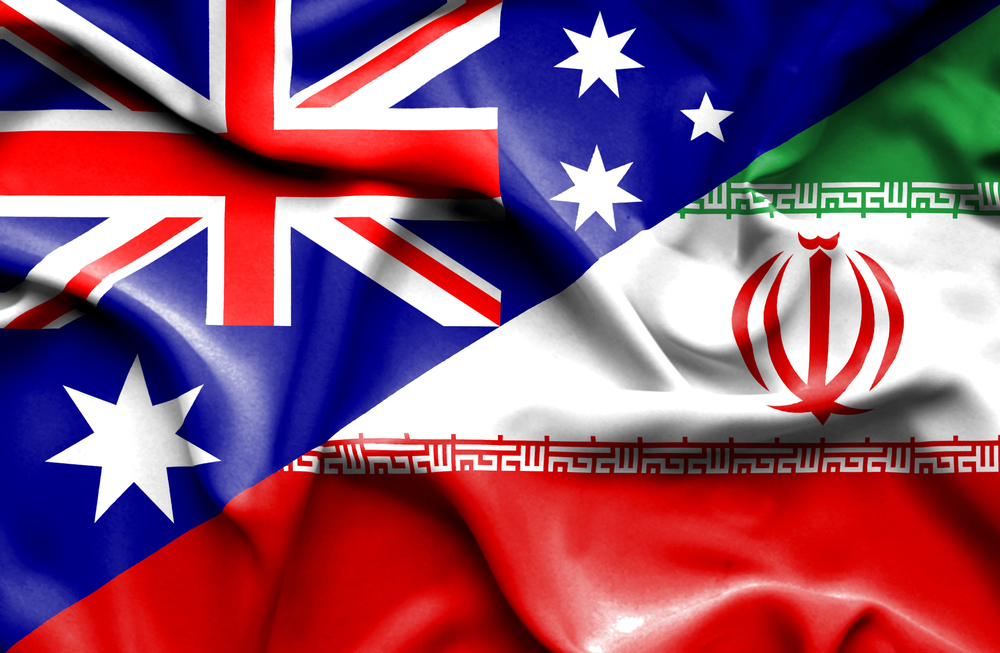Featured
Hamas gladly puts its people in harm’s way
[Hamas] believe[s] that if they can convince Israel’s Jews that they will never be safe in Israel, they will leave. This is why the Hamas October 7 massacres featured such calculated brutality.
Read MoreAIJAC welcomes new Australian sanctions targeting Hamas, Hezbollah, PIJ and the IRGC
The Australia/Israel & Jewish Affairs Council (AIJAC) welcomes the announcement of additional Australian sanctions targeting terrorism financing, and listing 12 persons and three entities linked to Hamas, Hezbollah, Palestinian Islamic Jihad (PIJ) and, most importantly, their overseer, the Islamic Revolutionary Guard Corps – Qods Force (IRGC-QF).
Read MoreSanctions can no longer be the sole response to Tehran’s blatant provocations
It is long past time for Western nations to recognise that appeasement of Iran has failed. The regime is at war with them, whether they wish to be at war with Iran or not. Sanctions cannot be the sole response to decades of terrorism, piracy, hostage-taking, arms proliferation and wars of aggression against the US-led international order.
Read MoreIsrael’s policy in Gaza is the opposite of the “deliberate starvation” lie
Despite the narrative being spun by many that Israel is preventing aid from entering Gaza, the real truth is the opposite. Israel, rather than targeting civilians, has done everything it can reasonably be expected to, and more, to try to help the Palestinian population while also fighting a deadly war under indescribably difficult conditions
Read More“Lies, damned lies and statistics” in Gaza
Details will not stop anti-Israel activists and officials from building a facile narrative around unreliable casualty numbers and accusing Israel of “genocide”. But for those genuinely interested in how the war against Hamas compares t … similar operations, the figures available strongly suggest that it is neither especially deadly nor especially destructive.
Read MorePenny Wong must understand that many Palestinians see all Israelis as ‘settlers’
Before her visit to Israel this week, Foreign Minister Penny Wong reiterated the government’s view that Israeli “settlements are illegal under international law” … Israel disagrees with this interpretation, arguing the West Bank is “disputed territory” and rejecting their definition as “occupied Palestinian territory”, as Australia’s current government argues.
Read More“In calling for a permanent ceasefire now, it leaves Hamas in place”: Colin Rubenstein on Sky News
“In calling for a permanent ceasefire now, it leaves Hamas in place”: AIJAC’s Colin Rubenstein on Sky News, 16 January 2024
Read MoreIsrael & Jewish world “extremely distressed” at events of past 100 days: Colin Rubenstein on SkyNews
Sky News’ Kevin Heatley interviews AIJAC’s Dr Colin Rubenstein on the ongoing conflict in the war against Hamas.
Read MoreAIJAC disappointed FM Senator Penny Wong not visiting Israeli communities devastated on October 7
The Australia/Israel & Jewish Affairs Council (AIJAC) expressed its disappointment that Foreign Minister Senator Penny Wong won’t be visiting any of the southern Israeli communities devastated in the October 7 Hamas atrocities during her current visit to the country.
Read More100 days on, the trauma has not dissipated
For Israelis, October 7 was cataclysmic and transformational, like September 11, 2001 was for the US, only more so… These events left a collective and still unhealed scar on not just the seven million Jews of Israel, but Jews the world over.
Read MoreAustralia needs to join the US and UK in sanctioning Hamas and Iran
Australia has not sanctioned Iran for its material support of Russia’s invasion of Ukraine since March 20 despite the drastically increasing levels of this support. Its most recent sanctions against Iran, for any reason, were imposed three months ago.
Read MoreSouth Africa’s ICJ “genocide” case against Israel “cynical and politicised act of lawfare”
South Africa’s contention in its International Court of Justice (ICJ) claim – that Israel’s actions to combat terror in the wake of the October 7 wave of unprovoked mass murder, rape, torture and kidnapping directed largely against civilians inside Israeli territory amount to the crime of genocide – is clearly absurd
Read More

